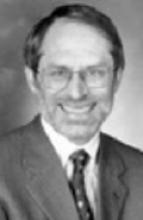I am 50 years old. I am plagued by a persistent pain in my back. I sleep sporadically. I don’t eat as well as I should and don’t exercise as I might. And yet, I expect to be skiing with abandon in the Vail bowls on Friday.
I am the future of Family Medicine.
With all the talk of the New Model, TransforMed, and technologies that will revolutionize practice, I invite you to consider the other side—our patients.
With the impending Blitz of the Boomers, middle age and geriatrics are being blurred. I am not talking about the 90-year-old elder in the nursing home, but the 72-year-old who recounted her cross-country skiing travails to me. FPs have opportunities to rethink the agenda of care, ministering to those who are unwilling to age gracefully on the porch. Maybe I’m envisioning a new specialty: Sports Geriatrics?
When we do deign to age, we Boomers will demand care beyond the confines of today’s practices and institutions, beyond the stereotypical limits of the past. We’ll demand more than end-of-life or hospice care. We’ll demand care that extends independence and function.
I wonder if we remain blind to meeting the needs of today’s patients. Why do we make busy executives visit our crowded offices? Why is the office even the locus of care—efficient for us, but not so for patients. The Burger King mentality of getting things our way will surely extend to medicine. Are we up to the challenge?
Do you look at Consumer Reports before making a major purchase? We need to rethink accountability in healthcare. Ever try to compare outcomes of your local surgeons? If your practice is like mine, we are fortunate to get the phone calls answered, let alone assess the progress of our patients with diabetes. How can we expect to really change behaviors of our patients and be responsive to unpredictable upheavals in our system without such skills? Rather than worrying about drive-through clinics and the expanding roles of nurse practitioners, I wager our time is better spent improving our own practices and knowing our outcomes.
Finally, I believe many of us are indeed committed to the notion of community—a place that is nurturing and nurtured. Yet I see a wide discrepancy between our values and actions. How many physicians focus beyond the patients who show up at their doors? How many practices really know their community needs, based on data? Can we meaningfully address the “epidemic of obesity,” the needs of the homeless, or the challenges of teen pregnancy by sitting in our offices? Can our communities sustain us as we age if we fail to participate in them?
Are we ready to be the future of Family Medicine?


